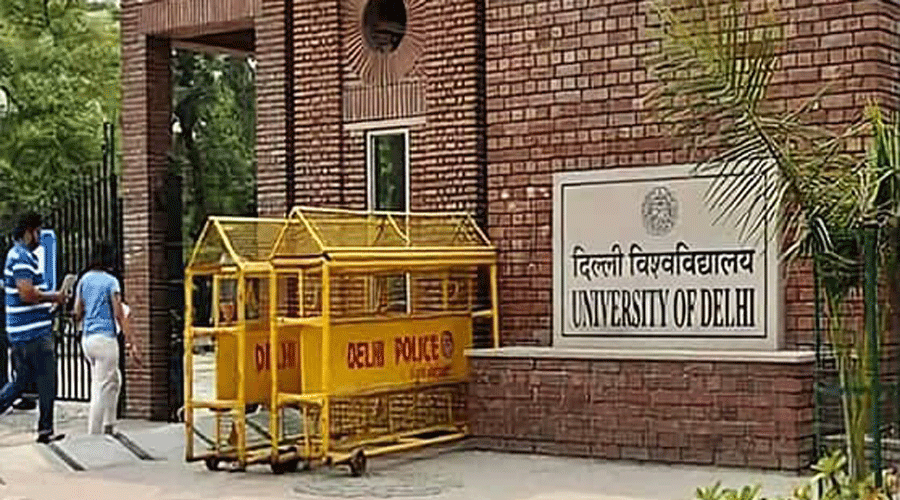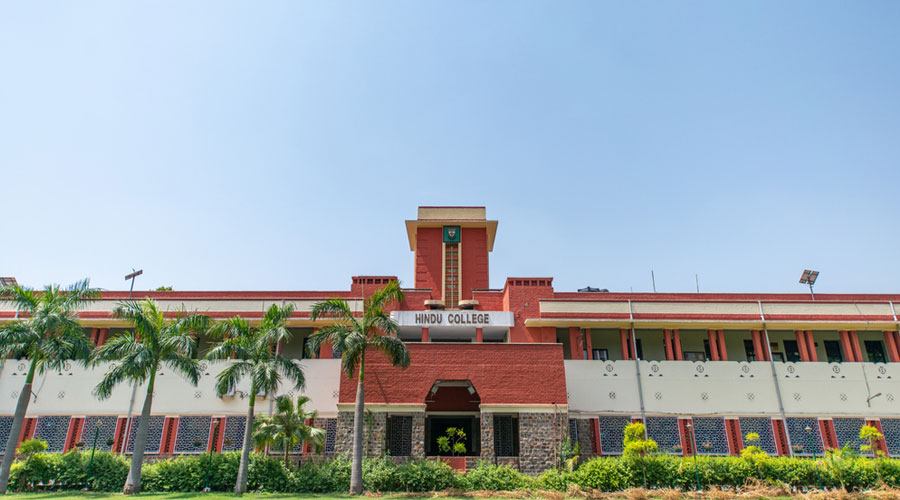Ahmad Faisal Siddiqui completed his master’s in political science from Delhi University last year and went back home to Mazar-e-Sharif in Afghanistan where he lives with his grandparents.
Little did he know that the Taliban would wrest power a few days later and India would withdraw diplomatic operations, stymieing the issuance of the long-term visa he would need to do his PhD from Delhi University.
What makes it worse for Faisal, 27, is that his parents are settled in Delhi, importing dry fruits and carpets from Afghanistan and supplying them to local dealers for a living.
His brother Haroon Siddiqui, who has been living with their parents in Delhi for 13 years with a residence permit, told The Telegraph: “My brother is keen to do his PhD from DU, but the issuance of visas to students has stopped.”
Faisal seems caught in a vicious cycle. He cannot get a visa unless he secures university admission, and he cannot afford admission without the Indian government’s scholarship for Afghan students, and new scholarships for students in Afghanistan have stopped with the stoppage of visas.
Nor is everything hunky-dory for Haroon, who did his master’s in political science from DU a year earlier than Faisal, or his parents. The family business has stagnated since India suspended flights following the Taliban takeover.
Haroon used to work as an interpreter with the Medanta Hospital for patients coming in from Afghanistan but lost his job two years ago during the lockdown.
“We have no earnings here now. Getting a job is too difficult. I appeal to the Indian government to resume flights and the issuance of visas,” Haroon said.
Like Faisal, several hundred Afghan students are stuck in their country while the Indian institutions they are enrolled in have largely shifted to the offline mode. Some who were in India when the Taliban grabbed power have had their visas extended.
The Indian government has extended the “stay visas” of 4,557 Afghans, junior foreign minister V. Muraleedharan told the Rajya Sabha on December 9, 2021.
India gives scholarships to about 1,000 Afghan students every year. The foreign ministry has assured a parliamentary standing committee that all the scholarships will continue.
According to data provided by Muraleedharan to the Lok Sabha on December 10 last year, 6,775 students came from Afghanistan to India in 2016, the corresponding numbers in the following years being 8,389 (2017), 8,779 (2018), 8,708 (2019), 3,029 (2020) and 3,431 (2021).
The South Asian University (SAU), which receives students from all the Saarc countries, is set to start all its master’s classes in the physical mode from August. But it’s unclear whether students from Afghanistan can attend.
Nishad Ahmed Noor, an Afghan student living in India, said hundreds of students in Afghanistan who aspired to an Indian education were in a dilemma.
“India must take a decision soon whether to grant visas or not. Once they (Afghan students) get clarity, they can decide on their higher studies accordingly,” Noor said.
The Taliban government last week took a decision to request India to grant visas to the Afghan students enrolled in Indian institutions. It’s unclear whether the request has been made, or whether it can be kept by India when it’s yet to officially recognise the Taliban government. India currently provides humanitarian aid to Afghanistan.
Furqan Qamar, former vice-chancellor of the Central University of Himachal Pradesh, said higher education was “as important as humanitarian aid, if not more”.
“The Afghan students benefiting from Indian higher educational institutions are India’s brand ambassadors in Afghanistan. By facilitating the education of Afghan students, India would help the country’s development immensely,” he said.
Citing an example, he said former Afghanistan President Hamid Karzai had earned his master’s in international relations from Himachal Pradesh University in Shimla.
Qamar said India should try to find a way to resume the education of Afghan students as “an investment for the future”.












